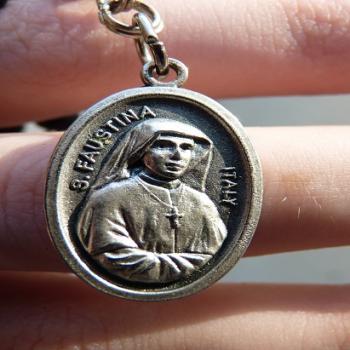This past Sunday at my coworker’s church, I received an insightful lesson on the Genesis story of Joseph, his brothers, and how their story ties into an overarching theme of reconciliation. It’s been ages since I read Joseph’s story in Genesis! When I looked at the “first reading” of the service in the pamphlet I received that Sunday, I read Joseph asking his half-brothers if their father was still alive. It made me teary-eyed, which I honestly didn’t expect to happen.
Brotherly Issues
When I was a kid, my sisters and I watched Dreamworks’ Joseph: King of Dreams, which made his story easy to understand. It’s still painful for me to watch the scene where his brothers sell him into slavery.
After rereading the Genesis text, my heart hurts (well, slightly) for Reuben, Joseph’s oldest half-brother. As an adult, I can better understand why he felt like he could only dissuade his brothers from outright killing Joseph after seeing how much they wanted him dead. I also had no idea that he was the only half-brother not present when they sold Joseph into slavery. How sad that he intended to rescue Joseph but never got the chance (Genesis 37:21-23).
It’s more evident to me now that Reuben never wanted any malicious action taken against his little brother, despite likewise envying him. When Reuben returned to the pit where he’d overseen his brothers abandon David and found that David wasn’t there, he tore his clothes apart in anguish (Genesis 37:29). Even in all his wildest dreams, Reuben never believed that his brothers would be so desperate to rid themselves of David that they would choose to sell him for a mere 20 pieces of silver.
10 more, and they would’ve been an even more perfect parallel to Judas! Not to mention, all of David’s half-brothers behave pretty similarly to the big brother of the prodigal son in Jesus’ parable.
Joseph had every right to be angry with his half-brothers. After all, they came close to committing the sin of Cain against him. It would take a chance, unwitting reunion with them in Egypt before Joseph could even fathom reconciling with them.
An Uncomfortable Reunion
Joseph had been appointed governor over all Egpyt by the Pharoah after God helped him interpret Pharoah’s two dreams about an impending famine. When the famine overtook both Egypt and Canaan, Joseph’s half-brothers traveled down to Egypt to buy grain from the stores Joseph had helped create.
Unbeknownst to them, Joseph immediately recognizes his half-brothers when they enter his dwelling to ask for provisions. To test them, Joseph treats them as untrustworthy strangers, accusing them of being spies taking advantage of Egpyt being barren. His half-brothers deny this accusation and in their stress mention that their youngest brother is still with their father in Canaan.
Their youngest brother is Benjamin, Joseph’s sole full-blooded brother from their father Jacob (also called “Israel”) and Rachel. The Book of Genesis drops several emotional hints in this text that Joseph still loved Benjamin profoundly and without the enmity shared between the half-brothers due to him being his only little brother.
Out of a heartfelt desire to see his little brother, Joseph commands his half-brothers to leave one of themselves behind in custody while the others go to retrieve Benjamin. Joseph demands this under the pretense that fulfilling his command will verify that his half-brothers aren’t lying about their identities.
Oh, Brother
Do you know what kills me? Reuben essentially tells his brothers “I told you so!” when they find themselves in this sticky situation:
“Then they said to one another, ‘In truth we are guilty concerning our brother, in that we saw the distress of his soul, when he begged us and we did not listen. That is why this distress has come upon us.’ And Reuben answered them, ‘Did I not tell you not to sin against the boy? But you did not listen. So now there comes a reckoning for his blood.'” Genesis 42:21-22
Joseph takes Simeon out of the group and makes him stay in Egpyt while the others return home to Jacob. After pleading with their father to let Benjamin travel with them, the brothers return to Egypt and hope for a peaceful resolution.
When Joseph sees Benjamin with them, he silently rejoices and orders a feast in celebration. This is where we see the first textual hints that Joseph deeply loves his little brother. As Joseph has his servants bring his brothers food portions from his table, he ensures that Benjamin receives 5 times more than their brothers (Genesis 44:34).
The next day, to test his half-brothers one last time, Joseph places his silver cup into Benjamin’s sack. His goal is to see whether or not his half-brothers will repeat their sin and throw away their little brother once more.
A Better Big Brother
Just as they think they’re headed back to Canaan, the brothers are ordered to return, and Joseph’s silver chalice is found in Benjamin’s sack. Instead of abandoning Benjamin, however, the half-brothers plead with Joseph for Benjamin’s sake, led by Judah. Ah, the irony, the very half-brother who led the others into selling Joseph into slavery being the same to step up for Benjamin’s sake.
Judah offers himself up in Benjamin’s place, begging Joseph to make him a servant instead of their youngest brother. To his shock, Joseph sees and hears through Judah’s plea that his half-brothers remember the anguish they caused their father and are desperate to avoid repeating their error. Joseph orders everybody besides his brothers out of the room and finally reveals himself to them.
Genesis 45 goes into heartwarming detail about Joseph’s response to Judah’s plea. He begs his half-brothers to forgive themselves, telling them that God’s hand led him to Egypt to preserve a future for them all.
Something that made me cry here was reading Genesis 45:14, where Joseph and Benjamin fall into a tearful embrace. It’s touching that Joseph first went to embrace him out of all their brothers. Joseph also gives his little brother far more gifts for his journey back to Canaan than his half-brothers receive. Another token of big-brotherly affection that Joseph had been aching to provide for so long.
As he sends them off to invite their father and the rest of the family to come to live with him in Egypt, Joseph tells his brothers to “not quarrel” on their journey (Genesis 45:24). After hearing his half-brothers’ remorse, Joseph’s heart was settled on peace.
First Accountability, Then Reconciliation
Martin Luther King Jr. once spoke this powerful quote:
“True peace is not merely the absence of tension: it is the presence of justice.”
After rewatching my favorite moments from the Avatar: The Last Airbender animated series, I’ve realized that one of the previous avatars, Avatar Kyoshi, said something similar to Avatar Aang:
“I offer you this wisdom, Aang: only justice will bring peace.”
For reconciliation to happen, the perpetrator(s) have to approach their victim(s) with bona fide humility, like Joseph’s half-brothers unwittingly did before him. To demand that victims automatically forgive their oppressors without first seeing any genuine remorse is tantamount to gaslighting.
Not to mention, you need to make sure that the remorse sticks! Looking at you, King Saul. King Saul was just as (if not more so) envious as Joseph’s conniving half-brothers. He kept ruining the possibility of peace between him and David by speaking remorsefully, but then turning around and seeking to end the future king’s life even when David pleaded that he meant no harm (1 Samuel 24:9-11)! Although Saul responded with remorseful tears, the fallen king still chose later to chase David down murderously.
Extend the Hand, My Friends!
Part of what motivated me to write this is everything I’ve read recently on deconstruction, the process of Christians analyzing their faith with soul-searching and contemplation. I’ve seen a lot of contempt for individuals going through this process. No wonder they’ve chosen to leave the church and their faith behind!
I don’t get it, folks. If the aim is to ensure that people going through deconstruction return to the church happily after they’ve finished, then where’s the compassion? The grace? The love?
Because I’ve failed to see any true compassion for them in some of the articles written against deconstruction! I can’t believe I’m seeing gaslighting tactics here, inferring that deconstructionists didn’t have a “strong/stable faith” to begin with.
When those who oppose deconstruction opt to “declare war” against it, such as John Cooper (lead singer of musical group “Skillet”), a dangerous “us vs them” mentality is created. Those who deride others for their perceived failures in faith sound way too similar to the Pharisee from Jesus’ parable of what it means to be humble (Luke 18:9-14).
It’s jarring to see that out of all of the Christian sects, it’s Evangelicalism that seems to be the greatest contributor to deconstruction. Have you heard of the term “ex-vangelical”? I’ve seen it attached to many social media posts regarding deconstruction, and at this point, I can’t say that I’m surprised. When it seems that it’s primarily Evangelical leaders who opt to dismiss the pain of those enduring deconstruction, the natural result is the Evangelical church becoming thusly associated with mocking the suffering of the “other”.
If the goal is to reconcile those enduring deconstruction of their faith with the church, then why aren’t these leaders doing better? It’s high time that Evangelicalism admits that “it’s not you, it’s me” and strives to finally listen to deconstructionists without demonizing them.
Featured Image by Connor Brennan
Hello, and thank you for supporting my work here on Patheos! If you’d like to support me further, please feel free to “Buy Me A Coffee” here:












